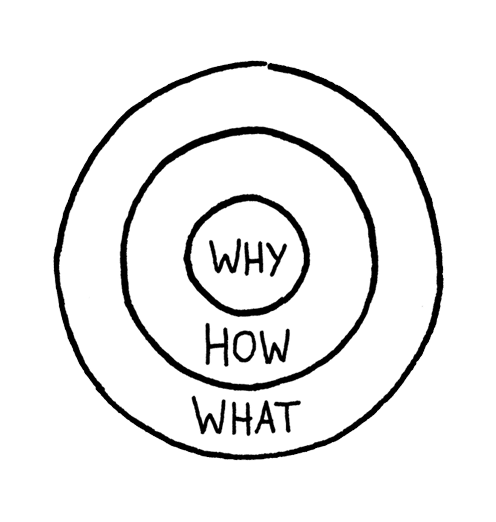I hate writing job descriptions. I always feel like I’m going to inadvertently write a job description for a purple squirrel.
I know who we are as a company; that part’s easy to write. But how much do I know about what we’re looking for in a candidate?
Are we basing the job description off the actual work we’re doing or off what we think we need from a candidate? Is that “3 to 5 years experience” really a hard requirement? Are we attracting (and comparing!) candidates based on skill set, professional values, or some combination of the two?
When it came time for our Client Services team to hire additional team members, I added a short, three-word description under the “Nice-to-have” section (“Community builder experience”) with the comment “I’m not quite sure how to word this but I think this is an important quality to include.”
Since this description can mean just about anything, someone responded, “Can you explain a bit more about why you think it’s valuable for us to be looking for this skillset? What about it makes a Cloud Economist more likely to succeed here?”
It took me almost two months to answer this response. I couldn’t quite articulate the thinking behind that phrase, and the question sat unanswered as my brain churned and churned trying to find the words to explain what I meant.
That’s when I stumbled upon Simon Sinek. And suddenly, I had the words to explain what I meant.
People don’t buy what you do, they buy why you do it
In his TED talk “How Great Leaders Inspire Action”, Simon talks about the Golden Circle and the neuroscience behind the importance of knowing why you do something.
In short, there are three concentric circles in the Golden Circle: the why is the purpose that drives everything the organization does, the how is the principles that guide the work, and the what is the services offered by the organization.

High-performing organizations, he explains, market themselves based on their why more so than their how or what because, as he puts it, “people don’t buy what you do, they buy why you do it.”
Most organizations have a why in the form of company values. But how often do they leverage that information publicly in their marketing and branding? Heck, how often do they leverage that information internally in business decisions like product development and cultural norms?
I’ve worked for countless organizations large and small that plastered their company values all over every wall. But I couldn’t tell you how those values dictated the flow of ideas and work that created their products. That’s what leads to all these hollow-sounding lists of corporate values we’re all oh-so-familiar with.
Protecting our clients
To me, that’s one of the things that’s so critical about The Duckbill Group: We have a clear why and we talk about it every chance we get. We protect our clients. Our CEO has even written an article about the origin of this company value.
To me, our why is even deeper than that. In a nutshell, our why is to help others succeed and leave them in a better place than when we first met them (a la the Boy Scouts rule). Cloud cost management (our what) is a complex, ever-changing journey, and we want to do right by our clients by guiding them through the process.
And we ultimately want people to join The Duckbill Group because they believe as we believe.
We want to work with people who care about other people
Which brings me back to my three-word suggestion in our job description.
I see a lot of parallels between our why and folks who are active in their professional communities—what I’m calling “community builders” in this context. I’m talking about the people who share their wealth of knowledge to bring people together and strengthen their community.
But even those words don’t feel quite right. They don’t quite capture what I mean. Other single-word descriptions came to mind, but what ultimately kept jumping out at me is this: We want to work with people who care about others.
There are many ways this manifests itself, including but definitely not limited to the behaviors I’ve seen in community builders—like sharing knowledge at conferences, writing blog posts or books, and more.
But no matter how it manifests, it’s the underlying desire to help others that’s so important to us at The Duckbill Group. I want that kind of person on my team. Or at the very least, I want to help them help others.
The more we can support each other, the stronger our community becomes. And with a community by our side, we can do anything.
Interested in working with The Duckbill Group, helping our clients lower their ridiculous AWS bills, and building a stronger community at the same time? Check out our career opportunities.





